Faced with the difficult situation of the grassroots health sector, many localities have had solutions such as increasing investment capital, sending newly graduated doctors to health stations, rotating practitioners from higher levels to lower levels... This is necessary, however, to revive and improve the quality and efficiency of the grassroots health sector, more fundamental and synchronous policies are needed.
"Support" medical staff
"How to solve the problem of both insufficient and weak human resources for the grassroots medical system?". In response to this question, Mr. Duong Thanh Binh, Director of the Department of Health of Quang Binh province, said: "The Department has a program to coordinate with Hue University of Medicine and Pharmacy to train and improve the professional qualifications of the existing team of doctors. Up to now, the units have coordinated to organize a number of training courses for level II specialist doctors, medical management for level I internal medicine specialists, level I specialist pharmacy classes, and level I specialist nursing. The provincial Department of Health will have a plan to mobilize students to practice at commune health stations, and then mobilize them to district health centers. In addition, on-site human resource training and "hands-on instruction" will also be given more attention. In particular, those who graduate from medical school with corresponding degrees and wish to work at grassroots medical units will be given favorable conditions for direct recruitment and some additional appropriate benefits."
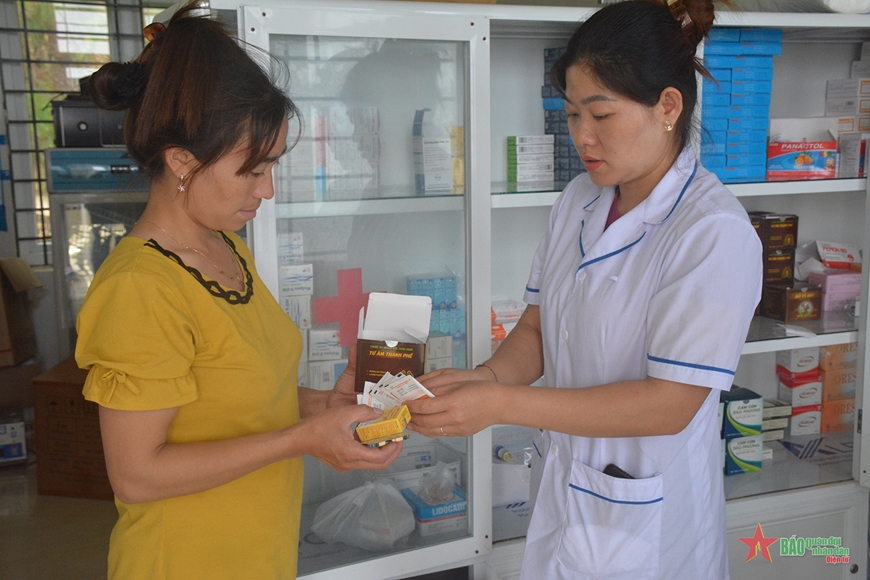 |
| Doctors at Phu Lung Commune Health Station, Yen Minh District (Ha Giang) give medicine to people. |
According to Dr. Nguyen Van Duc, Deputy Director of Bo Trach District Medical Center (Quang Binh), from 2021 to now, the Center has been recruiting continuously but no doctors have submitted applications. “We are lacking many doctors, especially those specializing in resuscitation and anesthesia, but it is very difficult to recruit them. If we do not change policies and “support” YTCS staff so that they can make a living from their profession, recruitment will continue to be difficult,” Dr. Nguyen Van Duc emphasized.
Faced with the shortage of human resources at the grassroots level, many leaders of health departments and local health workers have proposed that there should be a mechanism to support income for doctors and medical staff. “Many doctors quit their jobs, especially after receiving specialized training, to work at private hospitals with better salaries and benefits, so the grassroots level is always short of doctors. It is time for us to change some policies to motivate and encourage the grassroots level medical staff,” suggested Dr. Nguyen Tuan Viet, Director of the Minh Hoa District Medical Center (Quang Binh). From local practice, Comrade Ngo Xuan Nam, Secretary of Yen Minh District Party Committee (Ha Giang) suggested: “It is necessary to review, amend and supplement as well as issue new legal documents related to management, training, development and treatment of medical human resources to ensure harmony and suitability with the new context and situation. In addition, there should be a mechanism to reward and motivate medical staff when they innovate, create and have achievements in medical examination, treatment and community health care. For grassroots medical staff, especially in remote, isolated and particularly difficult areas, there should be reasonable occupational allowances and incentives”.
Synchronous and appropriate investment
In recent years, the Ministry of Health has made many efforts to develop the YTCS system. Typically, the YTCS support projects for the period 2019-2024 were implemented at 26 key health stations to synchronously equip the system of machinery, vehicles, and facilities; assign doctors to work in rotation for about 2-3 days/week/station; transfer a number of doctors, nurses, and secondary pharmacists to and from the stations as required, along with enhancing training to improve the qualifications of staff and employees... The Ministry of Health also requested the Vietnam Social Security, social insurance of provinces and centrally-run cities to calculate and assign a pilot quota for the number of initial medical examination and treatment registration cards at pilot commune health stations; requested to ensure enough medicine for health stations...
In Quang Binh province, to improve the quality of the grassroots health care system, the province has focused on directing the implementation of consolidating and perfecting the health network according to Project No. 981/DA-UBND dated June 20, 2018 of the Provincial People's Committee. Talking to us, Mr. Duong Thanh Binh, Director of the Department of Health of Quang Binh province said: “In addition to human resources, financial resources, facilities and equipment also need to be ensured. Circular No. 28/2020/TT-BYT issued by the Minister of Health on December 31, 2020 clearly stipulates the list of minimum equipment for commune health stations and the time limit for having all the minimum equipment is before January 1, 2022. However, currently, the stations do not have the resources to ensure it. Therefore, it is recommended that the Provincial People's Committee consider increasing the spending quota for grassroots health stations, especially commune health stations, to perform well the assigned tasks, associated with increasing investment in facilities and equipment, thereby improving the quality of health care and protection for the people. In the near future, the Department of Health will supplement equipment for health stations through the Ministry of Health's grassroots health project and other capital sources. as well as calling for support from sponsors to ensure medical equipment meets regulatory requirements, contributing to improving the quality of medical examination and treatment at health stations."
Associate Professor, Dr. Phan Le Thu Hang, Deputy Director of the Department of Planning and Finance and Director of the Management Board of Investment Projects for Construction and Development of the Grassroots Health System (Ministry of Health), said that in order for grassroots health care to promote its role, there needs to be synchronous solutions to enhance the overall capacity of the network, including management capacity, health service provision capacity, technical infrastructure capacity, health human resources, health finance and health statistics. At the same time, it is necessary to create favorable conditions for effective interaction between the grassroots health care network and the community through a new primary health care service delivery model, using family medicine to ensure personal health management, integrated, comprehensive and continuous care throughout life or through effective health education and communication activities, as well as with upper-level health facilities in the referral system towards enhancing coordination and collaboration for the benefit of patients.
According to Mr. Bui Sy Loi, former Vice Chairman of the National Assembly's Committee on Social Affairs, investment in grassroots health care must be synchronized in all three areas: Human resources - expertise, facilities, machinery and equipment to be effective. Faced with the limitations and shortcomings of grassroots health care, the Ministry of Health is focusing on building a health care station model based on the principles of family medicine with the principles: Continuous - comprehensive - integrated - coordinated - preventive - family - community to help improve the quality of medical examination and treatment services, thereby attracting patients to commune and ward health stations. In particular, for health stations without doctors, doctors from higher levels will be sent to work on a rotation basis. The Ministry of Health will also send professional staff from central hospitals to support commune and ward health stations to improve the quality of medical examination and treatment.
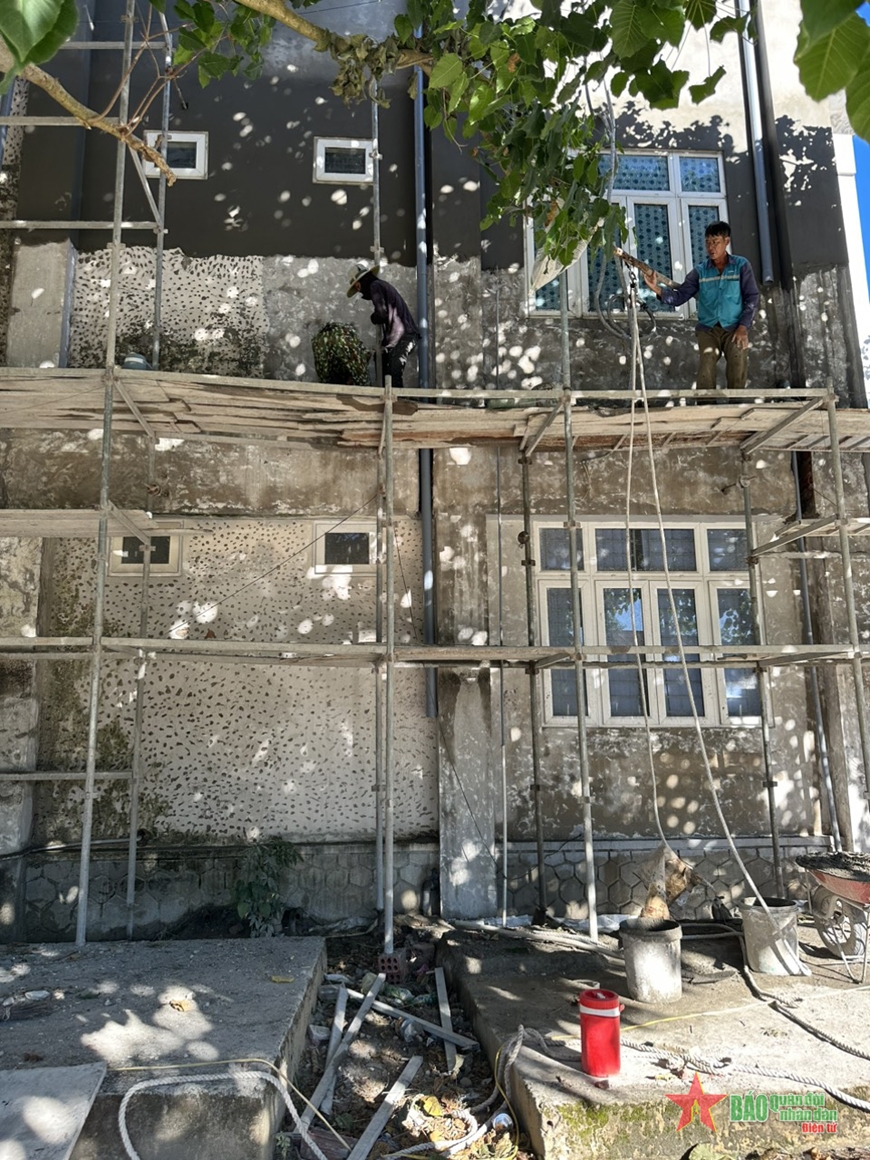 |
| Bo Trach District Medical Center (Quang Binh) is being invested in for repair. |
On February 15, 2023, the Government issued Decree No. 05/2023/ND-CP amending and supplementing a number of articles of Decree No. 56/2011/ND-CP dated July 4, 2011 of the Government regulating preferential allowances according to occupation for civil servants and public employees working at public health facilities. Accordingly, along with preventive health officers and border health quarantine officers, medical professionals at health stations, regional polyclinics, maternity homes, medical centers, and district-level hospitals will receive 100% allowances from January 1, 2022 to December 2023. By the end of 2023, these groups will return to enjoying the allowance levels as prescribed in Decree No. 56/2011/ND-CP. According to Dr. Nguyen Tuan Viet, the policy stipulated in Decree No. 05/2023/ND-CP is a good policy that needs to be maintained long-term to encourage and attract doctors to work at grassroots medical facilities and at the border.
Associate Professor, Dr. Phan Le Thu Hang said that currently, the grassroots health network only includes public components and has not yet integrated non-public components (such as private, non-governmental, non-profit health care, etc.). This limitation prevents us from making the most of available resources to serve primary health care, while non-public health is developing at a rapid pace (statistics in 2020 show that the country has 263 private hospitals, more than 35,000 private clinics and 43,000 pharmacies). Therefore, expanding the scope of the structure of the grassroots health network to integrate non-public components to serve primary health care is a suitable direction in the coming time.
Article and photos: HUYEN TRANG
*Please visit the Health section to see related news and articles.
Source



![[Photo] General Secretary To Lam meets and expresses gratitude to Vietnam's Belarusian friends](https://vphoto.vietnam.vn/thumb/1200x675/vietnam/resource/IMAGE/2025/5/11/c515ee2054c54a87aa8a7cb520f2fa6e)
![[Photo] General Secretary To Lam arrives in Minsk, begins state visit to Belarus](https://vphoto.vietnam.vn/thumb/1200x675/vietnam/resource/IMAGE/2025/5/11/76602f587468437f8b5b7104495f444d)

![[Photo] General Secretary To Lam concludes visit to Russia, departs for Belarus](https://vphoto.vietnam.vn/thumb/1200x675/vietnam/resource/IMAGE/2025/5/11/0acf1081a95e4b1d9886c67fdafd95ed)

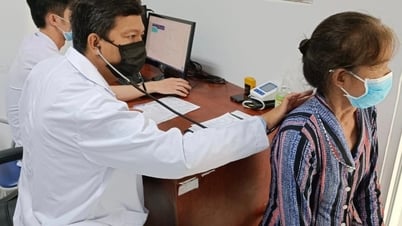

















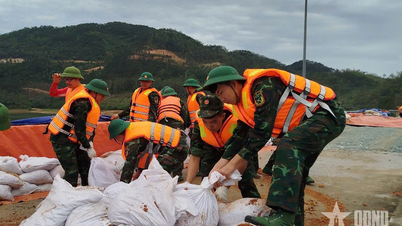
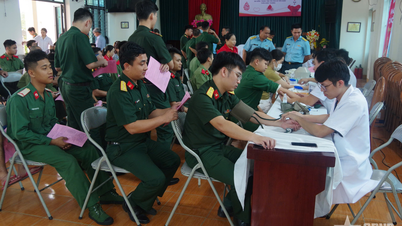
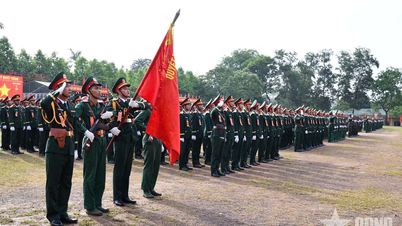




![[Photo] National Assembly Chairman Tran Thanh Man attends the Party Congress of the Committee for Culture and Social Affairs](https://vphoto.vietnam.vn/thumb/1200x675/vietnam/resource/IMAGE/2025/5/11/f5ed02beb9404bca998a08b34ef255a6)













































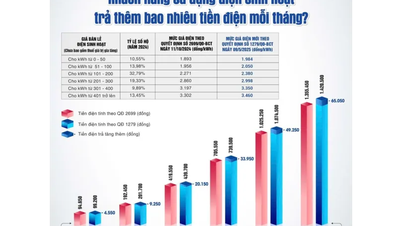

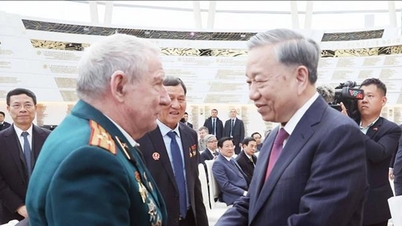
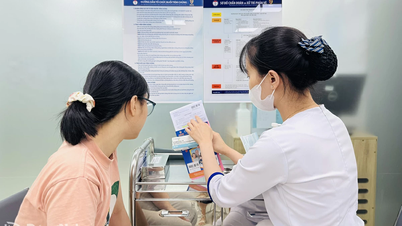

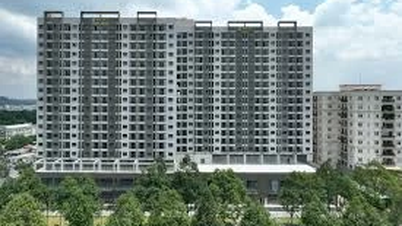










Comment (0)